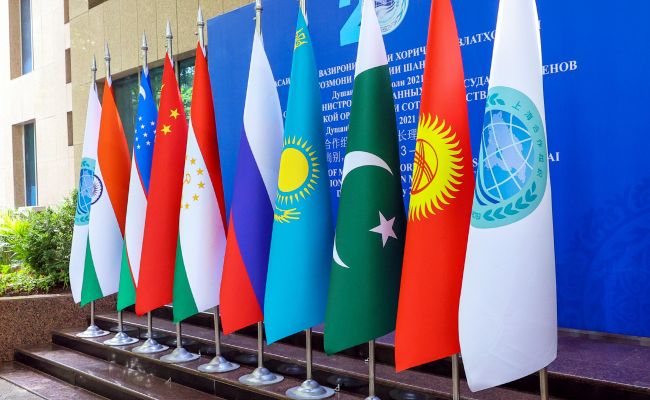
China's BRI enters a new phase amid growing mistrust of the dollar
By Rhod Mackenzie
Historically, investments into the Belt and Road Initiative (BRI) have been denominated in US dollars. Nevertheless, high interest rates as well as escalating geopolitical tensions have prompted the adoption of alternative approaches by an increasing number of investors, to avoid exposure to the US currency. According to analysts, the new forthcoming phases of the project will generally be financed in yuan.
"I anticipate an upsurge in investment in yuan as investors seek to mitigate geopolitical risks," stated Kanyi Liu, an international finance lawyer and the head of Pinsent Masons China, told Hong Kong's South China Morning Post.
This year celebrates the Chinese megaproject's tenth anniversary, which was initiated by Xi Jinping. The third BRI summit commences tomorrow in Beijing. According to a recent white paper, Beijing has signed bilateral swap agreements with 20 countries under the BRI initiative, and enabled yuan clearing in 17 countries. In an effort to boost the yuan's significance in the global finance sector, China has also introduced panda bonds denominated in yuan on the domestic market. Additionally, the white paper highlights the establishment of several specialized funds and indices.
By June 2023, the domestic market in mainland China had 99 panda bonds valued at 152.54bn yuan ($20.9bn), as well as 46 BRI-linked funds with total assets amounting to 52.72bn yuan.
According to REDD Intelligence senior analyst, Mark Bolund, the yuan-denominated loans and bonds represent a wise decision by Beijing.
Many African nations are experiencing a deficit of American dollars, as money is being funnelled back to the US, courtesy of the Federal Reserve's decision to raise interest rates and the significant upswing in long-term bond yields. "For several countries engaged in the Belt and Road Initiative (BRI), China is their primary import partner. Thus, it is logical for them to enhance the Yuan's portion within their forex reserves," Bolund elucidates.
According to a BNP Paribas Asset Management analysis, the expansion of BRICS and China's increasing investment and trade in Africa are advancing the internationalisation of the yuan.
"The growing transformation of the US dollar into a method of coercion and blackmail via financial sanctions is a compelling cause for African (and other) nations to decrease the proportion of the dollar in their foreign exchange reserves and convert them to the yuan," the study's authors wrote.
Egypt, a recent addition to the BRICS group, faces limited access to international capital markets. Despite these challenges, the African nation emerged as the pioneer in issuing panda bonds to finance green and social projects in May 2023. Notably, over 5% of Cameroon, Kenya and Tanzania's foreign trade relies on yuan, according to research conducted by BNP Paribas.
Earlier this year in January, Beijing restarted talks with Riyadh regarding the procurement of Saudi oil in yuan. Brazil, China, and Russia are collaborating to increase cross-border yuan payments. Due to the impact of sanctions imposed by the West, Russia now extensively trades with China using yuan. Iran, Venezuela, and Indonesia have also initiated transactions to sell their oil to China in yuan.
Yun Sun, co-director of the East Asia Programme and head of the China Programme at the Stimson Centre, believes that employing the yuan beyond China is primarily aimed at globalising the Chinese currency. Nevertheless, she deems the yuan unsafe due to the fact that its exchange rate is not solely determined by the market. As per her perspective, the absence of conversion restricts the use of yuan as a reserve currency.
"There will be challenges ahead, but Beijing has the chance to establish an alternative to dollar payments," stated Sun.
"China is expected to shift its focus from trade and aid to finance in its presence in the Global South," suggested Rolf Langhammer, a Kiel Institute of World Economics professor.
Additionally, he believes that the yuan's internationalization will go beyond its use as a currency of account in bilateral trade." Beijing aims to boost the appeal of the yuan as a transaction currency and unit of account, with the goal of convincing trading partners to price their materials and products in yuan.
Lauren Johnson of the Center for China Studies at the University of Sydney believes that "the significant advancement will be when African nations employ the yuan in their trade with one another."
